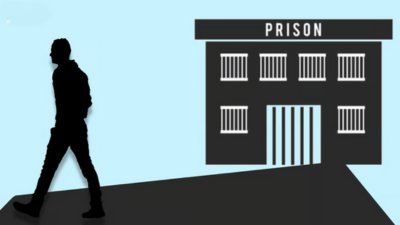The Bombay High Court recently called for a standardized policy for granting furlough and parole to prisoners【Bhausaheb Ankush Gade and Anr v. State of Maharashtra】.
A division bench, comprising Justices Vibha Kankanwadi and S.G. Chapalgaonkar of the Aurangabad bench, specifically addressed the practice of rejecting parole and furlough applications under Rule 4(10) of the Maharashtra Prisons (Mumbai Furlough and Parole) (Amendment) Rules, 2018. This rule allows for denial of furlough if a prisoner has previously overstayed their release.
However, referencing the Gujarat High Court’s judgment in Bhikabhai Devshi vs. State of Gujarat, which was subsequently applied by the Bombay High Court, the bench clarified that Rule 4(10) is to be interpreted as directory, not mandatory.
“In clear terms, it is held that in cases of late surrender with no element of escape but only element of delay in surrendering, they can be examined on the facts and circumstances as well as merits of the case. That rule is directory and not mandatory,” the Court noted.
The Court emphasized that a uniform policy could be achieved by amending existing rules, but noted that changes to the legislation itself might be required for effective results.
“We are afraid that unless there would be changes in the legislation, mere circulars or procedural difference will not give the proper results. Here, a uniform policy is required, which can be achieved by amending rules in view of the fact that there are rules in existence which are part of the statute,” the Court stated.
The bench was hearing petitions from Bhausaheb Ankush Gade and Pintu Ankush Gade, brothers serving life sentences in Harsool Open Jail for murder. Their applications for furlough leave were denied by the Deputy Inspector of Police (Prison) due to their prior overstays—194 days for Bhausaheb and 1,122 days for Pintu—during previous furloughs in 2014 and 2015.
The Gade brothers argued before the High Court that they had not sought any leave for over a decade and that their applications had not been evaluated in accordance with legal precedents. They pointed to their efforts at rehabilitation during imprisonment as grounds for reconsideration.
The Court highlighted an inconsistency, noting that a similar inmate with a history of delayed surrender was granted furlough, indicating a “pick and choose” approach by prison authorities. It also referred to past rulings, such as Subhash Pralhad Ghogare vs. The State of Maharashtra and Pratap Tukaram Godse vs. The State of Maharashtra, which held that prisoners should not be arbitrarily denied furlough due to past overstays when no escape attempts were involved.
The bench expressed dissatisfaction with the non-implementation of a policy proposed by the Additional Director General of Police and Inspector General of Prisons, which would allow applications from inmates who had surrendered late to be forwarded to the government for final approval.
Since the policy remains unfinalized, the Court concluded that prison authorities must adhere to prior judgments that do not allow for arbitrary denial of furlough in such cases.
In the case of the Gade brothers, the Court overturned the Deputy Inspector’s rejection of their furlough applications and ordered that they be released on furlough leave for the allowed days, under specific conditions.
Advocate M.M. Parghane represented both petitioners, while Additional Public Prosecutors Priya R. Bharaswadkar and A.V. Lavte appeared for the State.

















